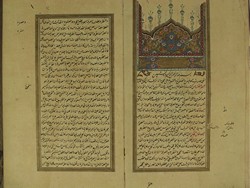Medieval Greek-to-Arabic translations build new philosophical bridges
It is well known that Islamic scholars in Medieval times translated important parts of the Ancient and late-Ancient Greek philosophers’ works. One controversial piece attributed to Aristotle and translated into Arabic actually comes from Plotinus’ Enneads. Dubbed the pseudo-Theology of Aristotle, the piece remains very important in shedding light on how Greek philosophy fuelled Arabic philosophical thought. The EU funded GREEK INTO ARABIC(opens in new window) (Greek into Arabic: Philosophical Concepts and Linguistic Bridges) project worked on producing the critical edition of the pseudo-Theology of Aristotle, complete with a translation, running commentary and bilingual indexes. It aimed to preserve the structure of the pseudo-Theology of Aristotle, which is quite different from the Greek original, in order to reveal how it was read and understood by Medieval Arab philosophers. The project team collected copies of more than 100 relevant manuscripts to prepare a publication that would radically update how translations are interpreted. This involved in-depth research in computational linguistics applied to ancient texts, as well as lexicographical research in Graeco-Arabic studies. The computational work, which produced the Web application G2A for comparing Greek texts and their Arabic translation, represents a successful pilot initiative in the field, while the high-tech data system has been adapted to be compatible with modern-day internet applications and requirements in the field of humanities. Importantly, the system developed is capable of aligning Greek and Arabic texts for clearer comparisons. It also features a glossary-type annotations feature, synthetic evaluation of the translation, in-depth linguistic analysis and an indexing/querying engine. This can be very useful for future research projects involving Greek into Arabic translations. In addition the project team developed the Greek and Arabic Lexicon(opens in new window) or reference dictionary of the Arabic translations of Greek philosophical and scientific source texts. The online lexicon offers tools and techniques to visualise research results and queries, including as well a user-friendly export feature to download or email query results. The critical edition of the pseudo-Theology of Aristotle, the system G2A, and the lexicon will prove invaluable in further study and refinement of Greek to Arabic translations.



